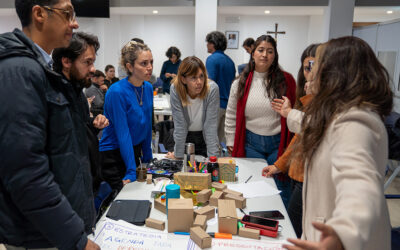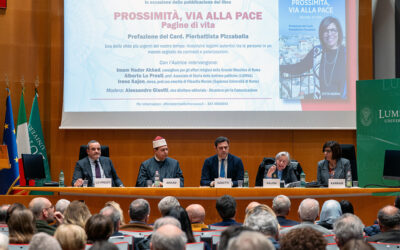A world without poverty, Christian identity and religious plurality
have been among the themes of the 9th General Assembly of the World Council of Churches which took place in Brazil, Porto Alegre, 14-23 February 2006
20/02/2006
![]()
 The World Council of Churches’ strategy to promote economic justice, a world without poverty, Christian identity and religious plurality was the central topic dealt with in the 9th General Assembly of the World Council of Churches, which took place in Porto Alegre (Brazil) from February 14 to 23. The Assembly met under an auspicious title: “God, in your grace, transform the world.”
The World Council of Churches’ strategy to promote economic justice, a world without poverty, Christian identity and religious plurality was the central topic dealt with in the 9th General Assembly of the World Council of Churches, which took place in Porto Alegre (Brazil) from February 14 to 23. The Assembly met under an auspicious title: “God, in your grace, transform the world.”
The participants numbered 4,000 and included delegations from the 347 member Churches of WCC which have a total following of 550 million faithful (Protestants, Anglicans and Orthodox).
A Catholic delegation also attended the Assembly, guided by Cardinal Walter Kasper, president of the Pontifical Council for promoting Christian Unity. During the opening of the Assembly, he read the message of the Pope which re-affirms the commitment “to seek ways to cooperate ever more effectively in the task of witnessing to God’s divine love.” Joan Back (from the “Centro Uno,” Focolare center for ecumenical dialogue) was part of the delegation. Though not a member of WCC, the Catholic Church nevertheless offers its collaboration through the meetings of a joint working group between the Roman Catholic Church and the WCC, and through the commitment to carry out joint projects.
During the plenary on “economic justice,” various experiences of church alternatives to the present economic system were shared. Vera Araujo, Brazilian sociologist, presented the Economy of Communion project, initiated by the Focolare Movement 15 years ago.
 The leaders of the various Churches expressed their concern about the “increasing inequality, the concentration of wealth and power in the hands of a few, and the destruction that is threatening our planet – all problems which are aggravated by the scandal of poverty in the South, that is now expanding to the North.” Such statements were offered vigorously in the Appeal composed by the “Justice, peace and creation” Commission, and explain the reason behind the choice of the Assembly logo: “Gathered at Porto Alegre, the place where the World Social Forum was held, we are encouraged by the constructive and positive message” launched by those Movements “which tell us that there are other possible solutions.”
The leaders of the various Churches expressed their concern about the “increasing inequality, the concentration of wealth and power in the hands of a few, and the destruction that is threatening our planet – all problems which are aggravated by the scandal of poverty in the South, that is now expanding to the North.” Such statements were offered vigorously in the Appeal composed by the “Justice, peace and creation” Commission, and explain the reason behind the choice of the Assembly logo: “Gathered at Porto Alegre, the place where the World Social Forum was held, we are encouraged by the constructive and positive message” launched by those Movements “which tell us that there are other possible solutions.”




0 Comments